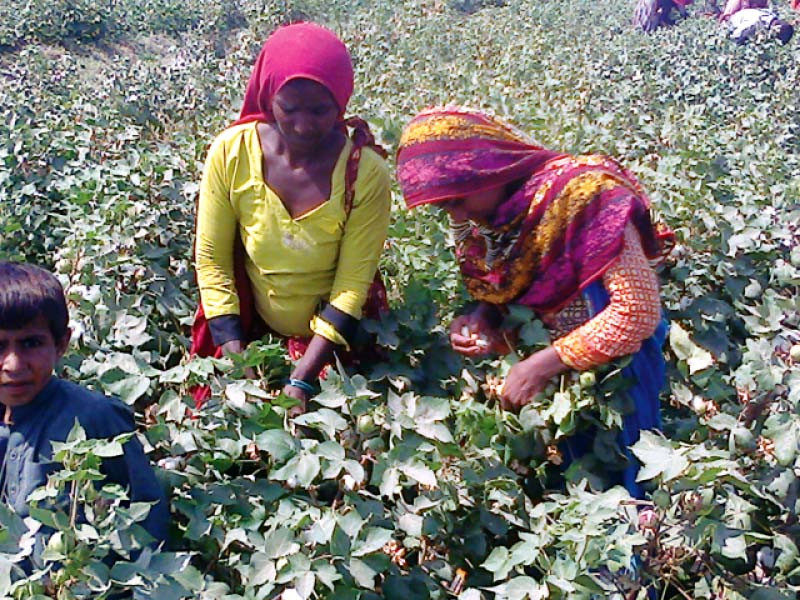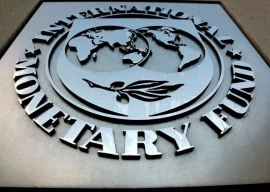
The women agricultural workers unlike their male counterparts remain exposed to violation of their rights in addition to the health effects despite enactment of several laws for their protection.
At a dialogue titled 'understanding climate change impacts on health of women agriculture workers', organised by Sindh Community Foundation (SCF) in Hyderabad on Wednesday, the speakers pressed the government to play a proactive role.
The resolutions passed at the event called for implementation of the Agriculture Women Protection Act, 2020, registration of agricultural workers and issuance of the labour and health insurance cards. It was demanded that the Occupational Safety and Health Act in Sindh should be revisited especially to include the women workforce and to ensure strict monitoring.
Briefing the dialogue the SCF Head Javed Soz said women employed for cotton picking were particularly vulnerable to severe health effects because the crop is harvested during extreme summer heat. They are also supposed to be provided protective gear during the picking which mostly causes allergies and skin diseases due to pesticides but the safety protocols are hardly followed in Sindh, he lamented.
The rising temperature, he pointed out, has further worsened the health consequences of the work for the women. "The summer peak temperatures used to vary between 40 to 43 degree centigrade in Matiari district [one of the cotton growing districts]. But now the summer peak readings have increased to up to 48 degree centigrade," he claimed, citing a study.
Soz said the situation requires urgent measures to protect the country's agricultural workforce which are exposed to certain health effects due to the increasing temperatures.
Nadeem Shah of Sindh Abadgar Board, a farmers' lobbying group, said the farmers should be sensitized about the climate change adaptation. He suggested that the vegetation and reforestation on the agricultural lands should also be encouraged.
Prof Ismail Kumbhar of Sindh Agriculture University said the farmers and the government should that ensure decent working conditions are provided to women agriculture workers. Prof Dr Shahab Mughal, Drirector Sindh labour department Nageena, Prof Imdad Chandio of Human Rights Commission of Pakistan and other stakeholders also expressed their views.
Rising temperature
The study conducted by SCF, a non-governmental organization, in Matriari district's 10 villages also mentioned children's health issues badly affected during the cotton season that usually starts in July and ends in October.
The increased temperature has reduced the working hours as the farmers are unable to pick cotton at peak of summer or less picking is done thus they get lesser wages, it highlighted.
A woman cotton picker, Moomal from village Yameen Apan said that they were able to pick one to 1.5 40kg in a day some 10 years back but, she added, now one hardly picks 20 to 30 kg which is all because of increased heat.
The number of heatwave days per year has increased nearly fivefold in last 30 years. The increase temperature has affected their work related productivity which has eventually affected their livelihood.
Like other parts of the province, majority of cotton pickers in the district are women. The study also revealed that Matiari also faces climate change impact where majority of cotton pickers are women.
Roughly, more than 50,000 cotton pickers participate in seasonal cotton picking in the three talukas of Matiari district and 70 per cent of them are women. It also said that almost 95 per cent women agriculture workers are illiterate and only a few can read and write a bit.
"Women are compelled to use open space to defecate exposing them to different social and physical hazards. It is something beneath their dignity," it added.
"We have observed 90 per cent women facing heat strokes during the season," said SCF's Executive Director Javed Hussain. He said that snake bite cases were also reported drastically. "The female workers do not use safety gears," he explained. "We see them with different diseases like skin infection and asthma," he counted.
Published in The Express Tribune, December 24th, 2021.



















1714500460-0/Yehia-Hamuda-baby-separated-from-parents-Gaza-(1)1714500460-0-270x192.webp)







1714370039-0/ojwilson-(1)1714370039-0-270x192.webp)


-(1)1714378140-0/AliAminMaryam-(4)-(1)1714378140-0-270x192.webp)
-(1)1714458896-0/ASP-(2)-(1)1714458896-0-270x192.webp)






COMMENTS
Comments are moderated and generally will be posted if they are on-topic and not abusive.
For more information, please see our Comments FAQ